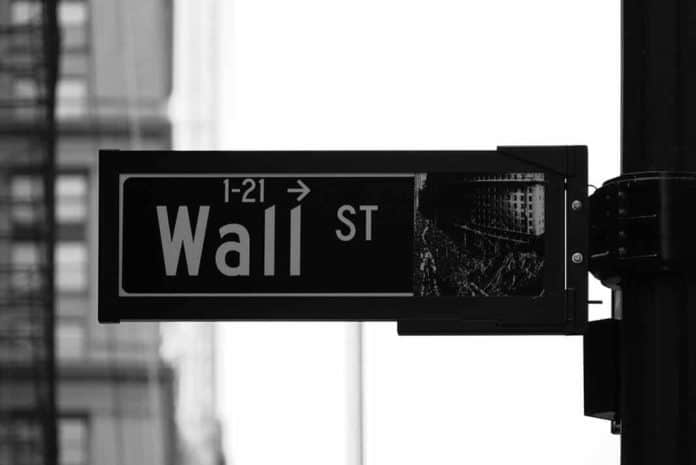Back in late 2012, it was revealed that then Attorney General Eric Holder dismissed a recommendation to prosecute HSBC for anti-money laundering, according to a staff investigation by the House Financial Services Committee. HSBC avoided prosecution because of the described “systemic importance” that they had towards the world’s financial system. Apparently, the concern was that the prosecution would facilitate a domino effect across the world.
In December of 2012, HSBC was penalized approximately $1.26 billion dollars and had to pay about $660 million dollars in civil penalties. $500 million of those penalties were directed to the Office of the Comptroller of the Currency and the remaining balance went to the Federal Reserve. This was all a part of an agreement with the Justice Department. This was due to HSBC failing to identify money laundering that was related to drug trafficking in Mexico There were also other accompanying accusations of failure to flag transactions with other countries that were subject to sanctions under the United States.
In fact, from a span lasting from the mid 1990s to September of 2006, HSBC permitted $660 million in transactions that were prohibited from the Treasury’s Office of Foreign Assets Control. While the fine was paid by HSBC, none of the executives or employees that were involved in these activities ever faced official criminal prosecution.
Upon these violations, Attorney General Eric Holder had testified that the size of the banks had grown to be a conundrum and would make it cumbersome to prosecute them due to potential implications it could have the national and world economy. This has been the reasoning given to justify the lack of an official prosecution. This stance was made firm with Holder calling HSBC and all other huge financial institutions “too big to fail.”
Five years after the settlement was announced, HSBC states that the Department of Justice filed a motion to dismiss the prosecution agreement imposed upon the bank, citing that the DOJ had recognized their compliance in anti-money laundering edicts. This came as a huge solace for the bank as plenty of money had been spent to strengthen compliance operations.
This is a topic that has been under much criticism for quite some time. The United States has emerged as the world’s economic superpower, as it has made its influence known across all major banks throughout the world. Despite not having jurisdiction in the affairs of other countries, the US can still utilize their economic power if it is convenient. In today’s world, most major transactions that are sent across country lines are funneled through the United States in some form or fashion.
The discerning factor that has been under controversy is how an individual would be treated against an institution. While it would be easy to jail an individual for a financial mishap, it is increasingly complex when dealing with an entire conglomerate. Usually, removal of a banking license would suffice as punishment because it would serve as a huge penalty against the financial institution in question.
Here is where the situation gets more complicated. There were specific individuals in HSBC who were responsible for committing the crimes. Therefore, trials and a court of law should be what awaits them. For those who may suggest that the reason why a prosecution did not happen because the crime was trivial, it should be noted that the crime in question has multiple layers.
First, there was a purposeful effort to hide wire transactions involving Iran. That is merely the surface. The majority of the case had to do with the money laundering between the United States and Mexico. HSBC was the facilitator of crime by funneling nearly $900 million dollars to dangerous drug cartels. There was also no way that HSBC could have engaged in these affairs without knowing they would have to deliberately not follow specific protocols such as reporting actions to law enforcement or refusing to undergo these businesses altogether. Therefore, a system of accountability has to be put in place.
However, we must also consider the potential collateral damage to those who are innocent. When HSBC is mentioned, the automatic assumption is that everyone who works under them may have been responsible. Since a corporation is just that and not a person, it doesn’t necessarily care if it is run out of business. However, the people who work there do because there are livelihoods that are at stake.
In today’s world, there has been a repeated process of the United States being very quick to fine corporations, but not as quick to prosecute them. We have seen this process played out multiple times since the mortgage crisis of 2008. Typically, the decision about who to specifically charge with a crime depends on the prosecution. They hold the right to press charges against both individual agents and the organization as a whole. However, these prosecutors are also obligated to prove which specific party was responsible for the crime as well as detail the crime in question.
Once the decision is made to prosecute an organization with a crime, the process is similar to that of a person. After going through the various details of the case and making a determination as to whether or not there is sufficient evidence to prosecute, they would proceed from that point forward. In many cases where organizations may not be subject to criminal penalties, sanctions may be imposed as an alternative.
Another factor that makes it difficult for institutions such as HSBC to be prosecuted is for them to be treated as an individual in a court of law. There are a couple of criteria that the institution would have to satisfy in order to be held liable for a crime. These conditions include the corporation’s agents undergoing clear criminal activity and if the crime committed was done in profit for the organization.
In the end, despite the reasoning given, there is more than enough justification to prosecute HSBC for the actions committed by either the organization as a whole or the individuals responsible. By not choosing to take serious action, there may be a dangerous precedent being set in the process. While a corporation cannot be jailed because it is not a person, there should be repercussions for serious financial transgressions such as laundering.
What shouldn’t be lost in this crime is that money laundering is not limited to just financial implications. There are real people that can be impacted as a result. Drug cartels are either directly or indirectly responsible for the loss of thousands of lives, and providing them with financial backing only enables them to carry out any evil agendas they may have. In both a legal and a moral sense, HSBC is accountable for both financial and moral wrongdoings, and there is more than enough reason to justify a prosecution.
It is clear that the United States has emerged itself as the most powerful economic force on the entire globe, because it could wipe out major financial systems on a whim. That power should always be used honorable and it should be used to punish institutions when they clearly engage in illegal behavior. Unfortunately, the United States’ war on drugs has caused a lot of collateral damage, and in the process, there are either innocent lives lost or people who are let go from their jobs. Regardless of such, at the very least, a prosecution for HSBC should be in place.












